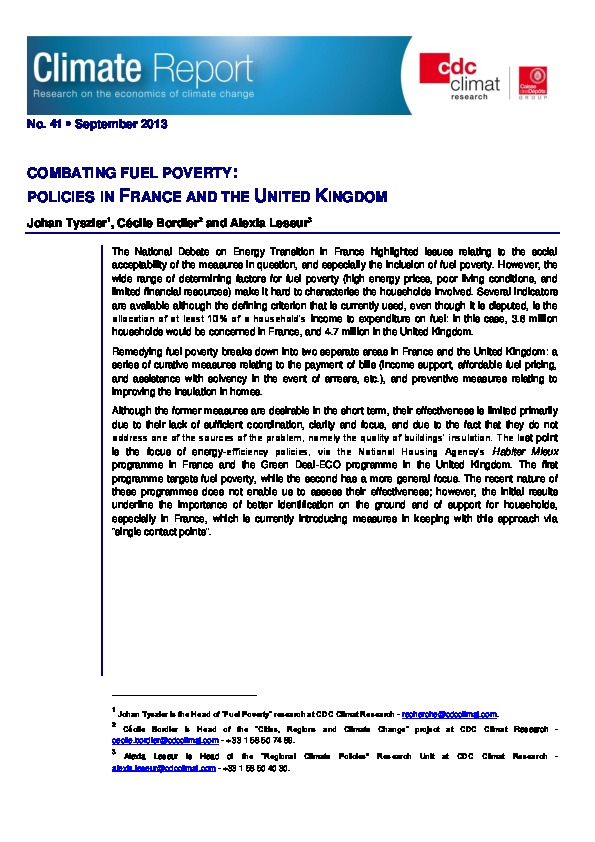Combating fuel poverty: policies in france and the united kingdom
By Johan Tyszler, Cécile Bordier and Alexia Leseur
The National Debate on Energy Transition in France highlighted issues relating to the social acceptability of the measures in question, and especially the inclusion of fuel poverty. However, the wide range of determining factors for fuel poverty (high energy prices, poor living conditions, and limited financial resources) make it hard to characterise the households involved. Several indicators are available although the defining criterion that is currently used, even though it is disputed, is the allocation of at least 10% of a household’s income to expenditure on fuel: in this case, 3.8 million households would be concerned in France, and 4.7 million in the United Kingdom.
